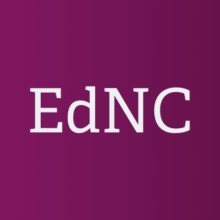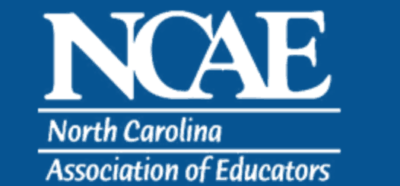The following is a press release from Senate President Pro Tempore Phil Berger, R-Rockingham
In a bipartisan vote, the North Carolina Senate today passed the conference report for Senate Leader Phil Berger’s (R-Rockingham) bill to make evidence-based policy changes to early childhood literacy programs. The legislation, Senate Bill 438, the Excellent Public Schools Act of 2019, incorporates input from a coalition of education stakeholders.
Studies and data show that reading comprehension by third grade has major impacts on a child’s future academic career and post-education prospects. Based on that data, the North Carolina General Assembly in 2013 launched the Read to Achieve initiative, which emphasizes the importance of early childhood literacy.
As with any new policy initiative, legislators and staff analyzed the results to identify successes and areas for improvement. As part of that work, legislators and staff engaged a wide array of education experts, stakeholders, and organizations, and analyzed best practices in local North Carolina districts as well as other states. The Excellent Public Schools Act of 2019 is the result of that in-depth work.
Senator Berger said, “Early literacy is a major determining factor of a child’s future success, so we have to get this right. Read to Achieve has worked better in some school districts than others, so we set out to learn why and how to improve the program. This bill is the result of that extensive analysis, and it incorporates best practices from across the state and country. I appreciate the input from so many people as we developed this legislation and I’m happy to see it receive such broad support in the Senate.”
The Excellent Public Schools Act of 2019 addresses in-classroom instruction, reading camps, educator training, and data collection.
In-classroom instruction
The bill directs teachers to create individual reading plans for students who need additional assistance in literacy. Teachers will use the data produced from assessments to tailor specific plans of action catered to each student’s particular needs. This is not a one-time plan, but a continuous process that evolves from kindergarten through third grade.
In 2016, Mississippi successfully enacted individual reading plans. Since 2016, the percentage of Mississippi students scoring level three or above on state tests has increased by more than 12 points, with a nearly 10 percent increase in students scoring four or above. Level three indicates a passing score, and level four indicates proficiency. Individual reading plans are likely not the only cause for student improvement in Mississippi, but the case study offers a valuable data point that supports the policy’s inclusion in the Excellent Public Schools Act.
Additionally, in recognition that parental involvement is critical to development, teachers will inform parents of the individual reading plans and direct them to online or hardcopy resources to help at home. And to ensure parents have access to quality resources at home, the bill directs the Department of Public Instruction (DPI) to develop the Digital Children’s Reading Initiative, a website containing free materials for parents to help students improve literacy skills. This is based on Read Charlotte’s website, which can tailor resources to address specific literacy deficiencies.
Lastly, the bill directs DPI to develop or identify model curriculum for use by school districts to ensure best practices proliferate throughout the state. The data indicates that some school districts fare better than others in childhood literacy growth. All districts should adopt best practices to execute consistent literacy strategies.
Reading camps
Summer reading camps can be effective remedial tools to improve literacy in students who are falling behind. Importantly, educators who excel in teaching childhood literacy should be part of the summer reading camps when possible. The Excellent Public Schools Act of 2019 provides an incentive for teachers who have earned reading bonuses to participate in reading camps by allowing that experience to count for two literacy credits required for licensure renewal. It further allows retired K-3 teachers to come back and teach at summer reading camps, and provides compensation for doing so.
To ensure reading camps adopt best practices, the bill directs DPI to determine which methods are working and which are not, and then develop model standards for school districts. In the future, districts will be required to submit reading camp plans to DPI for approval and funding. The bill also affords districts more flexibility in operating summer camps by encouraging them to work with community organizations and eliminating the requirement that camps span at least 3 weeks.
Educator training
Teacher preparation in executing literacy strategies is just as important as the strategies themselves. The N.C. Center for the Advancement of Teachers (NCCAT) is a state-funded program that provides professional development programs to teachers. The Excellent Public Schools Act of 2019 directs NCCAT to focus more extensively on early grades literacy training and to develop high-quality programs in coordination with the UNC system and DPI.
The bill also allows DPI to renew and expand its contract with WolfPack Works, which provides coaching to early career teachers.
Data collection
The Excellent Public Schools Act of 2019 provides a uniform format for reporting data to make analysis easier. Identifying best practices and then implementing them statewide is a crucial strategy for literacy improvement, and streamlining data collection will improve that strategy.


